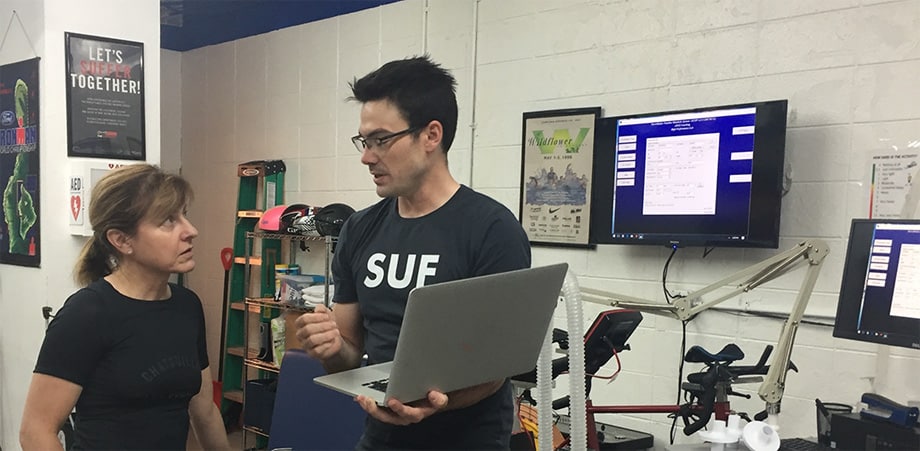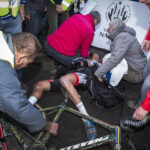As the racing season wore on each year, I would often catch myself daydreaming about autumn and the freedom of the off-season. The appeal of a brief, carefree respite tends to grow as our remaining race days dwindle.
We think about how nice it will be to sleep in, eat an extra slice of pie on Thanksgiving, and spend a Sunday watching football or a movie rather than our Garmin screen on a long ride. But for me and many athletes I coach, the off-season quickly becomes the most challenging period of the year. Riding is such a central part of our lives. What are we supposed to do with ourselves?
Take a holiday
Take Time Off
Whether you had a fantastic or disappointing season, it is common for athletes to come into the off-season full of motivation to improve. However, I know from experience that it is a mistake to start training for next year on the Monday following your final race. Your body needs rest, and so does your brain. You might even feel fresh and ready to go, but it is easy to get used to a certain level of baseline fatigue with constant training and forget what “rested and healthy” actually feels like. Finding that baseline again can be crucial to allow your body to build its reserves so it can optimally adapt to training again and make the gains you want for next year.
That high level of motivation can be fickle, too, and easily wasted. For most of us, there are four to five months before the opening road race of the 2025 season. I’ve seen athletes charge out of the gates with training in October only to hit a wall of burnout in December and miss training days when it actually matters.
I had my best professional seasons when I took at least 3-4 weeks off the bike in the fall, as much as I struggled to do so. I advise my athletes to do the same, but we often break it up. We will take a week or two off after their last race, enjoy the last of the good riding weather, and then take another block of time off before starting winter training in earnest.
Do you keep getting dropped?
Work On Your Weaknesses
In my last Toolbox article, I discussed evaluating your season to set better goals for the off-season. What held you back from the success you wanted in your 2024 racing? Was it a specific type of fitness, like your climbing ability? Were you never in the right place at the right time to make the winning move? Were you wasting energy and opportunities because of subpar bike handling and pack positioning? The off-season is a perfect time to work on those limiters.
Planning Your Training Approach
If you found that you “just didn’t have the legs” in the crucial moments of your goal races this season, this is a great time to investigate those shortcomings. I think this is where good coaches make their money, helping athletes figure out exactly where to spend their limited time and energy in training.
For example, suppose you always got dropped on climbs in the final hour of your event. In that case, your coach can design training blocks for fatigue resistance, maybe work with you on your diet to drop a kilo or two before key climbing races, and refine your in-race nutrition to ensure you have the energy to perform later in races. If you don’t have a coach, this is an ideal time to look for one – even for a consultation or two to work on specific issues.
Figuring it out
Figuring the Game Out
If, on the other hand, you felt like your tactics and execution cost you results that you had the fitness to attain, there are different approaches, so you can invest time in this off-season. Bike racing is a complex game, and if you can’t see the dynamics at play, it can almost seem like a lottery on wheels when it comes to who makes the winning move. That is rarely the case, though, and every racer will have a friend or competitor who “is always there when it matters” in the race.
My best advice to improve tactically is to seek those racers out and start asking questions. He or she will know the local races better than anyone, and an hour coffee or spin talking about key moments in races can be a game changer when it comes to understanding your goal events and the best tactics to succeed.
If that isn’t an option, there are some great resources online to help you learn how to make better decisions in the thick of a hard race. I recommend Norcal Cycling on Youtube, where the host takes the viewer through GoPro race footage and points out key moments. Even watching breakdown videos of pro races like the ones Chris Horner and Lanterne Rouge provides an education on racing dynamics in an entertaining package.
Athletes “study game film” in almost every major sport. You can make big tactical improvements by doing the same.
More time on the mountain bike
Better Bike Handling
You can’t outwork poor bike handling; I know that from experience. I came to the sport relatively late with a big engine and no background in actually “driving” a bike. Eventually, I got frustrated by only getting results on mountain tops and time trials. I dedicated myself to becoming more skilled in corners and moving up through the bunch rather than around it.
There are many ways to approach that challenge without taking unnecessary risks and finding your handling limits the hard way. Spending time on the mountain bike is a great way to improve your body awareness and learn to use your bike in corners rather than fight it. Start on easy, flowing trails that don’t require a lot of pedaling, and see if you can improve your time through short technical segments.
Youtube can be very helpful in this case as well. There are a lot of great videos breaking down how to corner effectively and make space for yourself in the peloton. You may think you simply aren’t as brave as other riders in bike handling, but often, athletes don’t know the fundamentals. Learning skills like trail braking and seeing the racing line through corners can turn hesitant riders into criterium specialists and make racing technical courses exhilarating rather than panic-inducing.
Use Your Fall To Get Ahead
Instead of spending your valuable time off the bike fighting boredom and lamenting lost fitness, make the most of it. You could make your most significant gains of the year without logging a single workout.
The post How to Have a Great Off-Season appeared first on PezCycling News.



